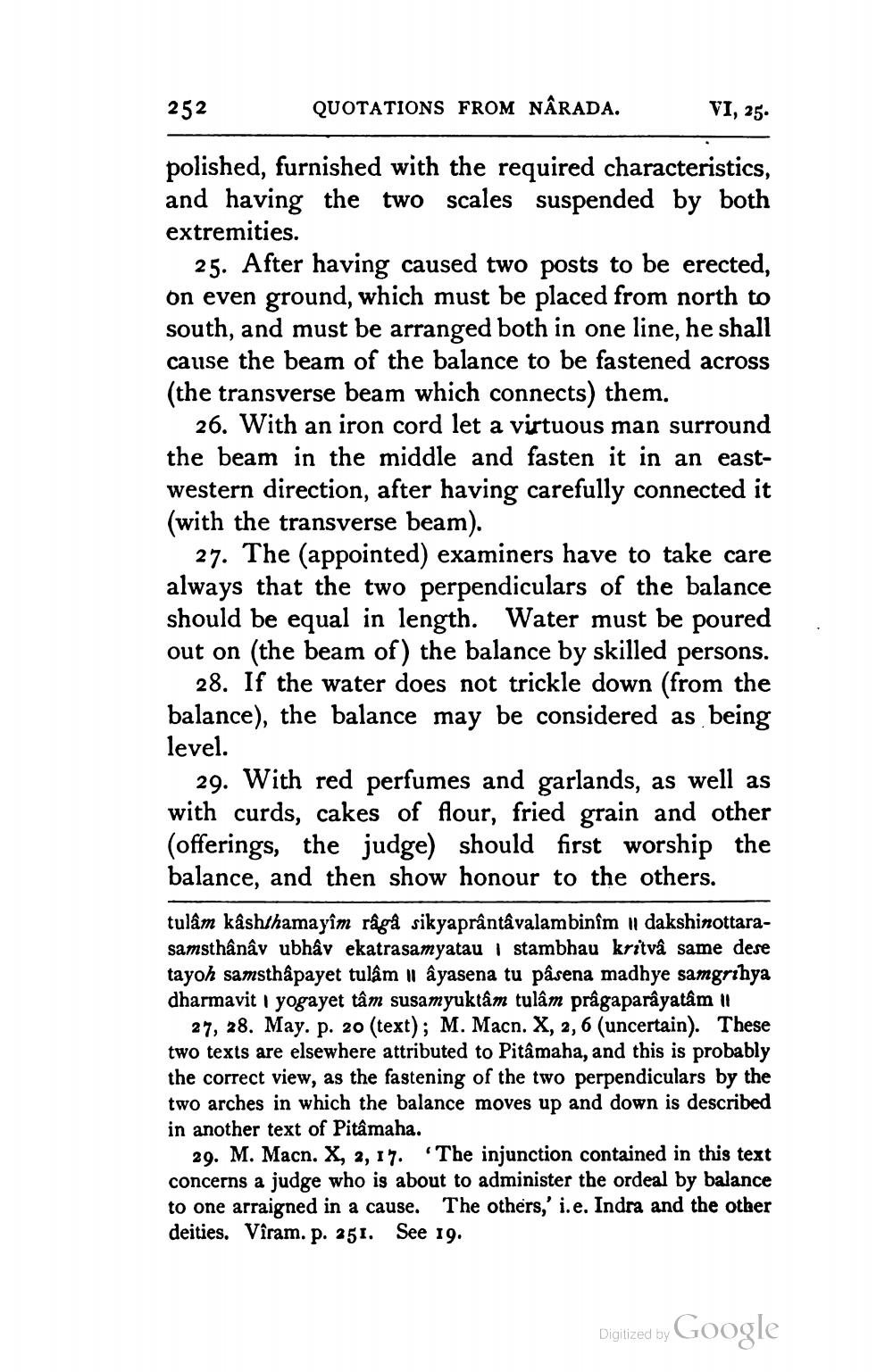________________
252
QUOTATIONS FROM NÂRADA.
VI, 25.
polished, furnished with the required characteristics, and having the two scales suspended by both extremities.
25. After having caused two posts to be erected, on even ground, which must be placed from north to south, and must be arranged both in one line, he shall cause the beam of the balance to be fastened across (the transverse beam which connects) them.
26. With an iron cord let a virtuous man surround the beam in the middle and fasten it in an eastwestern direction, after having carefully connected it (with the transverse beam).
27. The (appointed) examiners have to take care always that the two perpendiculars of the balance should be equal in length. Water must be poured out on the beam of) the balance by skilled persons.
28. If the water does not trickle down (from the balance), the balance may be considered as being level.
29. With red perfumes and garlands, as well as with curds, cakes of flour, fried grain and other (offerings, the judge) should first worship the balance, and then show honour to the others.
tulâm kâshthamayîm rågå sikyaprântâ valambinîm li dakshinottarasamsthânâv ubhav ekatrasamyatau i stambhau kritvå same dese tayoh samsthåpayet tulâm II âyasena tu pâsena madhye samgrihya dharmavit yoga yet tâm susamyuktâm tulâm prấgaparayatâm ||
27, 28. May. p. 20 (text); M. Macn. X, 2, 6 (uncertain). These two texts are elsewhere attributed to Pitamaha, and this is probably the correct view, as the fastening of the two perpendiculars by the two arches in which the balance moves up and down is described in another text of Pitâmaha.
29. M. Macn. X, 2, 17. "The injunction contained in this text concerns a judge who is about to administer the ordeal by balance to one arraigned in a cause. The others,' i.e. Indra and the other deities. Vîram. p. 251. See 19.
Digitized by Google




